As another impeachment trial begins today, the second in my lifetime, I’m really left wondering if character matters to anyone anymore for our political leaders.
The Democrats fought for a resounding “no” in the Bill Clinton sex scandals, and many of my Republican friends are pushing the same agenda now that their champion holds the White House.
Growing up, everyone I knew talked about the importance of moral character in voting for our representatives. Now, no one seems to care, or doubts that anyone rising to that level of politics will have any character left. One can hardly argue that Hillary Clinton had any better character than Trump. It seems a cynical electorate no longer seeks out a candidate who exudes integrity, honesty, or graciousness, and perhaps even sees those things as detriments to getting their agenda accomplished
At least, the character issue is back in the news again, after the Christianity Today editorial calling for President Trump’s removal from office or appealing for his resignation. “His Twitter feed alone — with its habitual string of mischaracterizations, lies, and slanders — is a near perfect example of a human being who is morally lost and confused.” Mark Galli’s editorial also expressed his concern that evangelical support for Trump is undermining the credibility of the Gospel among groups that President Trump regularly belittles or marginalizes.
The Christian Post immediately responded that Christians who support Trump support him for appointing pro-life judges, standing up for religious freedom for business owners, moving the embassy in Israel to Jerusalem, and fighting for border security. “It’s a different kind of character that is found in courageous leadership, fortitude, and dogged determination. There is a deeper morality in keeping your promises after you’ve been elected.”
It is disheartening to see people who claim to be following the same Lord and King so passionately divided along the Trump line, and so dismissive of anyone who disagrees with them. As one person told me, “I’ve got friends who regard President Trump as the nephew of Jesus Christ and others who think he’s the cousin of the Antichrist.” So do I.
Jesus prayed that his glory would fill each of us in such a way that we would become one with the others, and that’s how the world would know we are directed by the breath of a better Spirit. Is this division the fruit of our politics becoming our first loyalty, or even seeking a savior among those who play the political game?
That’s why so many change tactics when their self-interest does. Those who dismissed the importance of Clinton’s flawed character back in the day, now want to hold Trump to account. That’s how you know it isn’t truly about what’s right or wrong, but about whatever advantage I can gain to drive my agenda. If we’re going to champion character, we have to be less one-sided on political issues or personalities. I appreciate those who can support some of President Trump’s policies, while still struggling with his caustic demeanor that diminishes his office and harms our national interest.
While I like many policies of his administration, I’d be hard-pressed to commend President Trump as a man of character. I don’t understand how many of my evangelical friends can ignore the problems he creates by dividing Americans into polarized groups, obfuscating the truth, and demeaning anyone who disagrees with him.
By granting unparalleled access to evangelical leaders, he has convinced many that he can right the American ship and that he needs to protect Christians from the liberals who wish to persecute their faith. What those leaders don’t seem to understand is that their unquestioned support for President Trump makes them complicit in his lies, his mockery of others, and the self-serving nature of his “America First” that has hurt our standing in the world among our own allies. Their unquestioned allegiance is having an impact on how people perceive the mission of Christ in the world.
What his detractors don’t seem to understand is that while evangelicals may be embarrassed by Trump’s bullying tactics, they won’t criticize him because they feel like the media establishment has already done so unfairly. In their mind, Trump may be an immature bully, but he’s their bully. They have long grown tired of the establishment media and leftist politicians belittling them as unthinking, gun-toting “deplorables,” and they see Trump’s antics as evening the score. But that is a mixed message at best. Many have justified his tactics by convincing themselves it takes someone as underhanded and belligerent as Trump to disrupt the Washington establishment that has worked so hard to marginalize them.
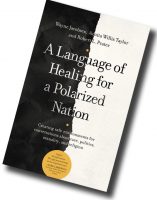 In a discussion in Los Angeles recently with a group called CultureBrave about my new book, A Language of Healing for a Polarized Nation, I was asked why I thought evangelicals give President Trump their unwavering support even though he doesn’t demonstrate the behavior they claim to value?
In a discussion in Los Angeles recently with a group called CultureBrave about my new book, A Language of Healing for a Polarized Nation, I was asked why I thought evangelicals give President Trump their unwavering support even though he doesn’t demonstrate the behavior they claim to value?
Before I answered, I asked him what his conclusion was. His response was immediate: “Racism, pure and simple.”
I understand why he would say that. Being an African American himself, he knows that racism didn’t end with the Obama presidency. Incidents of police violence against black males increased during his term, as did threats against President Obama himself. When Trump said, “Make America Great Again,” he heard Trump dog-whistling those who want to undermine gains in civil rights for the past forty years and re-assert white dominance of the culture. Like him, I am gravely disappointed that this President doesn’t even pretend to represent all Americans and seems to use our racial divide for political gain.
That notwithstanding, I don’t believe most evangelicals have a racial agenda here. At least, I never hear that sentiment expressed among them. The image that disturbed them most was not a black man in the White House, but a rainbow of lights splashed across it when the Supreme Court affirmed the legality of gay marriage. Their concerns are not about race but sex. They are pained by abortion-on-demand at any stage of pregnancy, the amount of sexual exploitation in our culture, and special accommodations for the LGBTQ community they perceive as infringing on their religious liberty.
As long as President Trump supports these causes, most of the evangelical community will put character on the back burner just as feminists did for President Clinton. They know that any word of criticism of his divisive and immature behavior will only trigger his wrath and threaten their access.
If character has any value, it’s what protects us from doing what we want to do for ourselves at the expense of others. Personal expedience is easy to understand. Everyone tends to do whatever they think will serve them best at the time. By nature, it is self-serving and often leads to decisions we come to regret. Every law we have is to rein in people of questionable character who are willing to use whatever advantage to benefit themselves.
In our bottom-line culture of garnering political power or individual profit, character is a fool’s errand. You can make more money and gather more power by greed and duplicity than you can caring about what is right, just, generous, and fair to others. Good character is the moral compass that will call someone to forego personal expedience for a higher human good. What may be best for me may not be fair to you or best for us all.
Character allows us to consider other factors than merely our pleasure or profit and doesn’t seek to benefit at someone else’s expense. Character comes by living to the truth, even when it hurts and especially when it costs you more than you’d want to pay.
When does character matter most? I can think of two places.
First, character is critical whenever you give someone power. Raw power uncontrolled by a moral compass and sense of fairness will wreak havoc in the long term, even if it serves your interests in an immediate circumstance. The same way my evangelical friends have felt despised by leftist politicians and the media for decades are now unwittingly creating that same resentment in those Mr. Trump despises. It’s a no-win game. You may hold the cards now, but you eventually won’t, and there will be dividends to pay you’ve not yet considered.
Without character in our national leaders, they will always put party above country, and their gain above the common good. Lacking integrity, a President will continue to risk American blood and treasure in an unwinnable war as Johnson and Nixon did in Vietnam, and now we are learning that Bush and Obama did the same in Afghanistan. A lack of character allows so-called “public servants” to take financial rewards for friends and family instead of fighting for equal access for all.
Character doesn’t change just because the financial reward grows greater, or the need to win an election becomes more acute. I’ll admit it’s hard to find anyone on the national stage who has the character to be a statesman or stateswoman, but that doesn’t mean we give up looking or encouraging those in power to do better. Win-at-all-costs is a strategy that only foments further division and anger.
And it’s not just politics, don’t we want people of character acting as our CEOs, educators, military officers, religious leaders, and law enforcement? What kind of society do we become when people in high places do not have a moral compass than bends toward honesty, justice, compassion, fairness for all? We get CEOs that take excessive compensation at the cost of providing fair wages for their workers, district attorneys who charge a man they know to be innocent to get the crime off their books, religious leaders who hide the rape of children for fear public relation concerns, and military officers that cast a blind eye to harassment.
Character matters in every stratum of human society, and it matters most among those who hold power. Making society fair for you also includes making it fair for others who don’t think like you. Once we give in to the bottom line, be it in political power or maximizing profit, character gets lost, and society suffers.
Secondly, and this is for my evangelical friends, character matters most when we hope to demonstrate the nature of God to others who don’t know him. It would be fine for us to support those policies we think will make for a better nation, but to let the arrogance, mockery, and dishonesty go unchallenged is to forsake a higher calling. You most need character when it calls you to do what’s right, even when it costs you what your self-interest desires.
When you think President Trump either needs to be roundly condemned or blindly defended, you have already purchased a seat on the train of illusion that wraps religion in a flag and uses it to divide this country further and as we’ve seen in the last few weeks. Peggy Wehmeyer, a journalist based in Dallas, expressed her frustration at fellow evangelicals, “What has really troubled me from the beginning is why can’t people say on the one hand, ‘We love what he’s done on religious liberty, abortion and the economy,’ but on the other hand, say that ‘As Christians whose allegiance is to Jesus Christ, his behavior is despicable’?”
When Jesus’ followers are marked by a political agenda, be it on the right or left, especially one that prides itself in mockery, deception, and putting down others, people will be confused about the Gospel as well. If God’s followers don’t demonstrate his glory by how they treat everyone around them, regardless of political leanings, the light of Jesus dims.
Jesus said as much at the end of his time on earth. As he prayed before going to the cross in John 17, he talked about putting God’s glory on display by the way he lived. He demonstrated how compelling his Father was by the quality of his own person—his passion for justice and truth, and his tenderness and love for all.
And when Jesus prayed for the disciples, he said he had ‘spelled out’ God’s character to them in detail so that his life would be on display in them now. This is the evidence the godless world needs to make sense of God’s reality. (I’ll be talking more about this in days to come because displaying God’s glory is the mission he left on earth for his followers.)
Our loyalty is not primarily to change the world through the wielding of political power as satisfying as that might be to our flesh. Our allegiance is to the God who redeems us, and our passion should be for his glory to dwell in us so that we would live with the same tenderness and compassion that marked Jesus’ life. If we become associated with anything else, the message of the Gospel gets twisted in the frailties of human flesh. Even when we fall short, we can still uphold the ideals to which we aspire.
This is how the world will come to know him, not because his name appears on our t-shirts, but because his splendor is on display in our character.
__________________________________
Wayne Jacobsen writes at Lifestream and podcasts at The God Journey. He is co-author of A Language of Healing for a Polarized Nation, The Shack, and many other books.




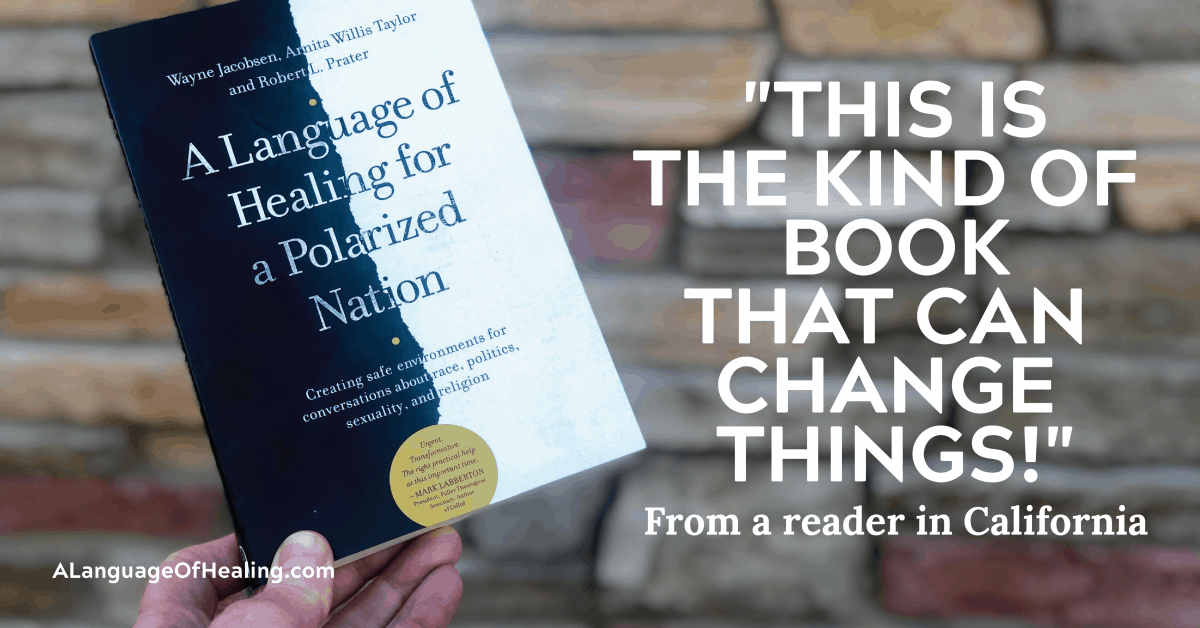


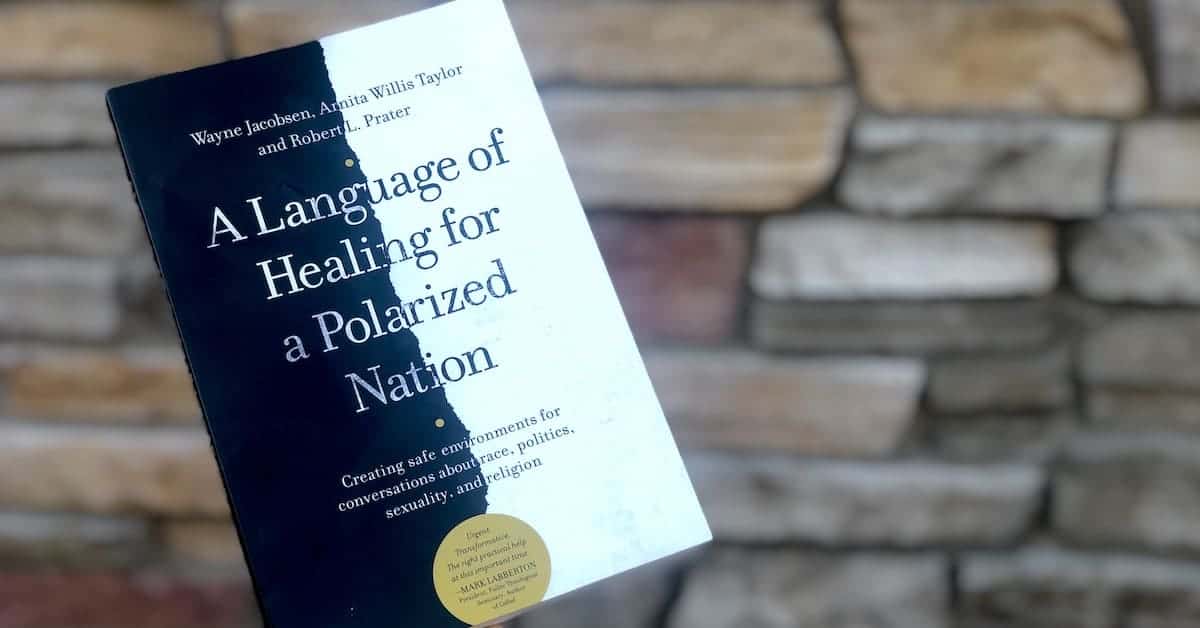



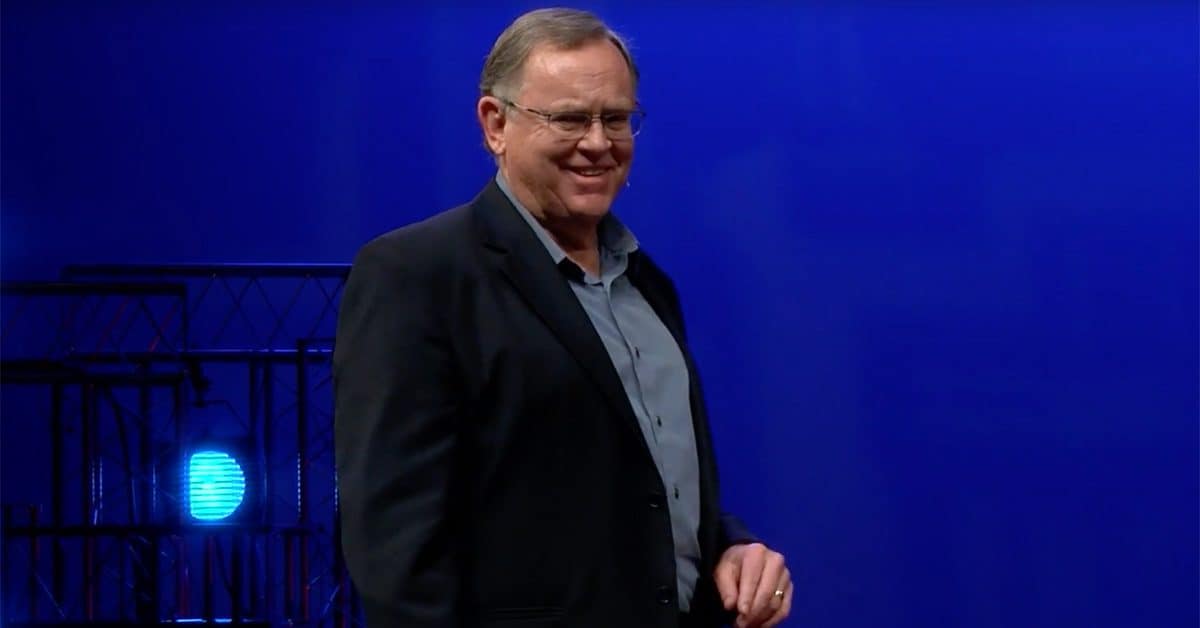

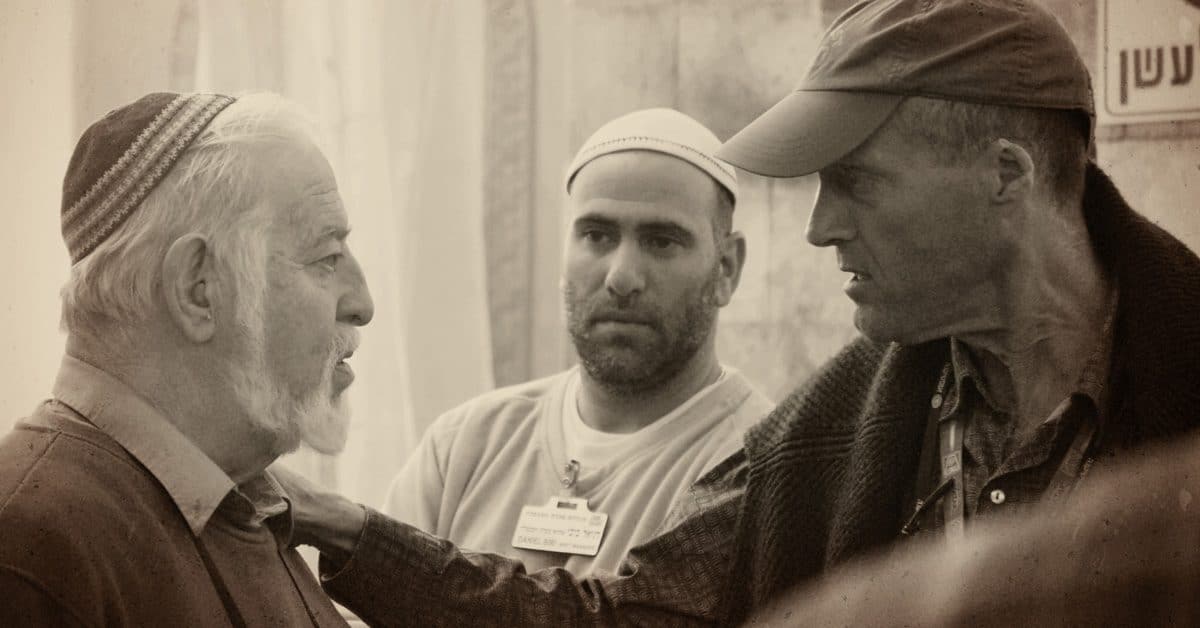
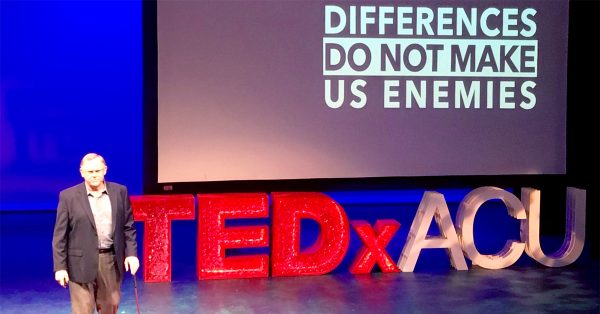 In the meantime my TEDx talk, Differences Don’t Make Us Enemies, was well-received and even motivated two students to approach me afterwards about an internship with BridgeBuilders. I explained to them that BridgeBuilders is nothing more than me, but that I appreciated their enthusiasm. I was also approached by a university executive that wanted to talk to me and pursue the possibility about helping their staff navigate a controversial issue, which I will also be doing next week.
In the meantime my TEDx talk, Differences Don’t Make Us Enemies, was well-received and even motivated two students to approach me afterwards about an internship with BridgeBuilders. I explained to them that BridgeBuilders is nothing more than me, but that I appreciated their enthusiasm. I was also approached by a university executive that wanted to talk to me and pursue the possibility about helping their staff navigate a controversial issue, which I will also be doing next week.